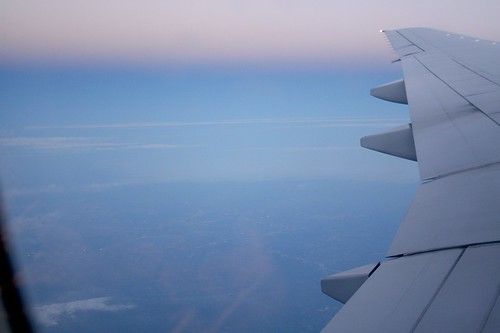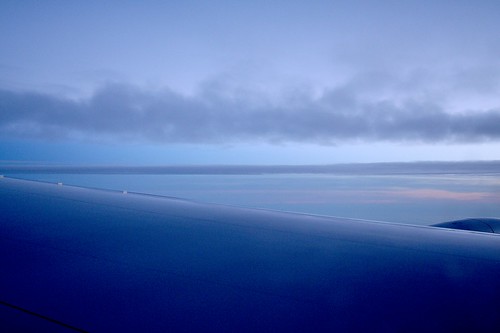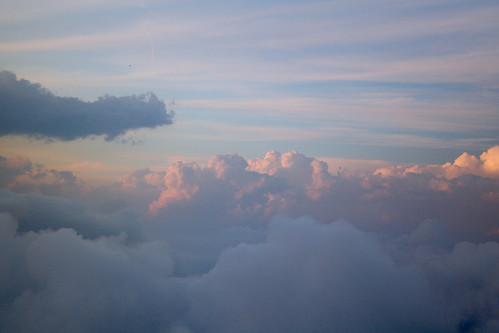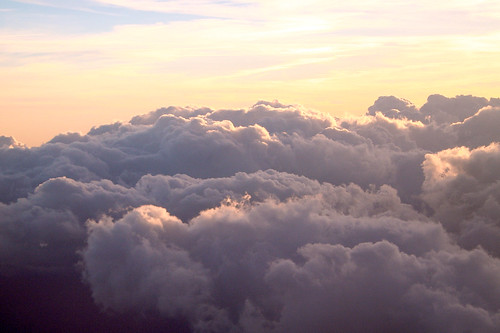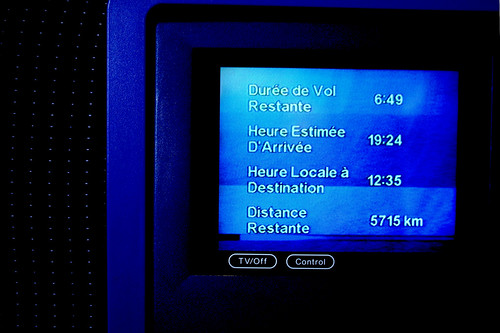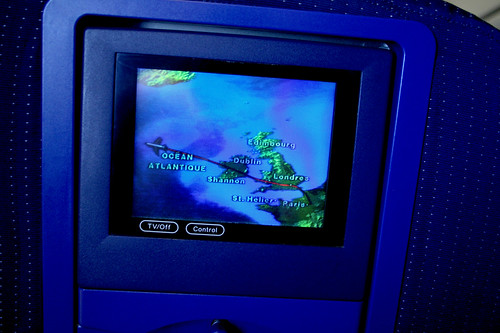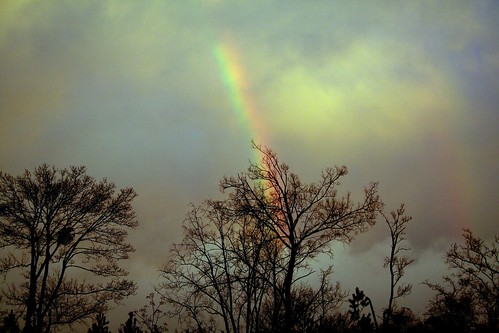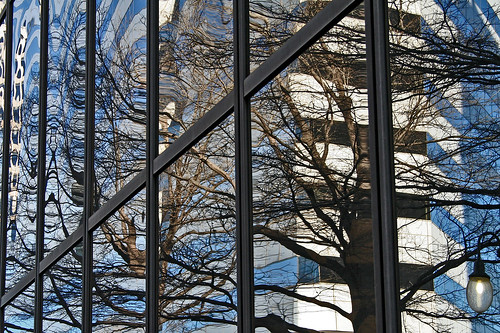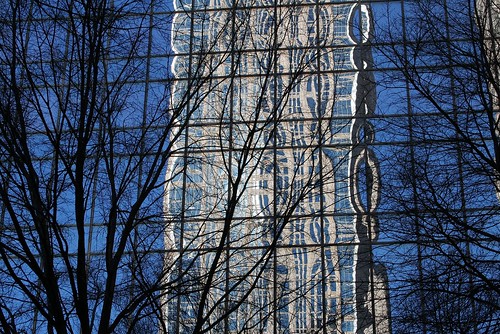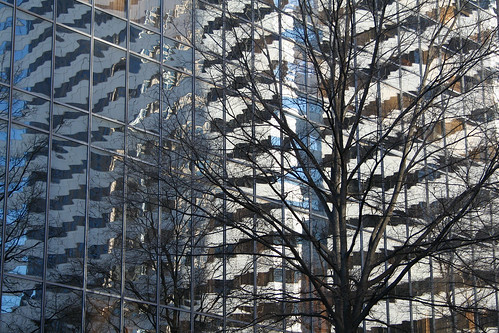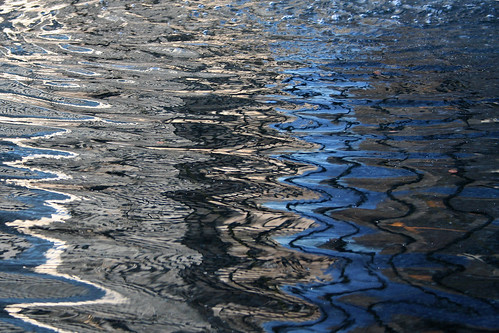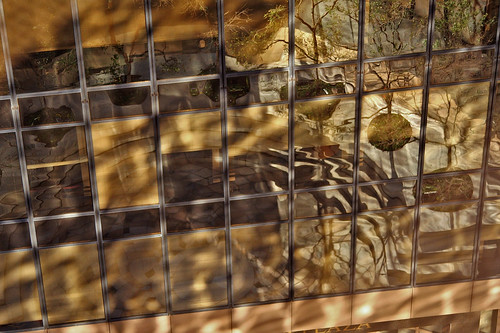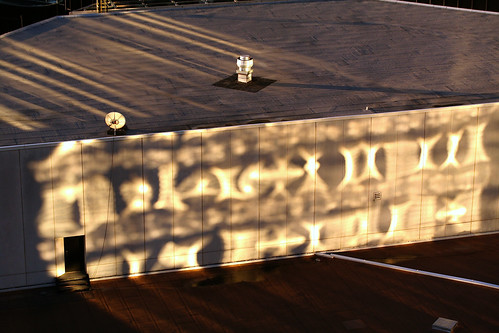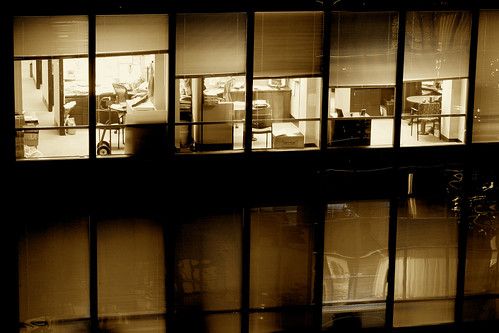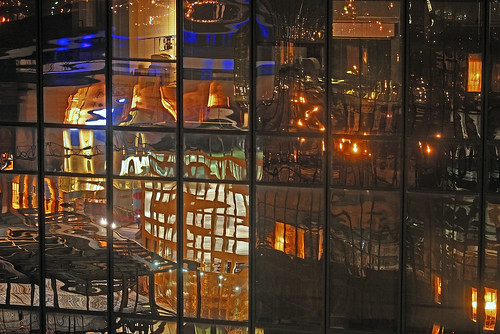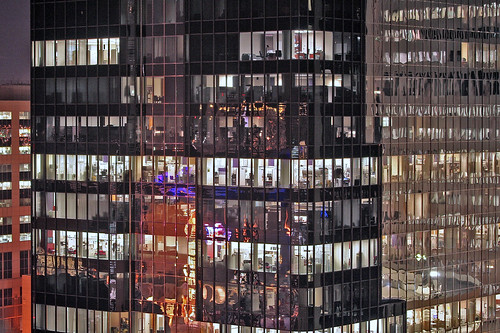Wednesday, February 28
Intermission
They're feeding each other, two small birds
swiveling on a sea-stone, open beaks
kissing and closing—creatures seeing to each
other's needs without question, drawing
the big world into their brief circle
of wing-quiver, heart-shiver, quick cries
as if the nerves themselves gave tongue,
the path between desire and satisfaction
shorter than thought, the ground dividing
being from being—one flesh-protected
spark of life from another—covered
in no time, so even time, for the moment,
is a matter of no moment, smoke that
vanishes into air, into thin air, to leave
but a flaring thing behind—candescent,
burning its one good instant till all is ash,
redemptive breath recovering itself,
eyes seeking in eyes an answer
to what's happened. The fire at the heart
of things is what these two birds ignite
in their give and take, saying we live
in the one world—where some law of
loving exchange is what tends the blaze
and can startle us into a kind of intermission
of peace between two clamorous cliff-
crumbling waves that rear break roar and
rip to shreds a coast of stone, unsettling
the air we stand in with a surf-storm of
salt-light that bites our eyes, blinding them.
-- Eamon Grennan
Eamon Grennan's "the trip"
Posted by
rb
at
2/28/2007
![]()
Thursday, February 22
stubborn desire
I turn you out of doors
tenant desire
You pay no rent
I turn you out of doors
all my best rooms are yours
the brain and heart
depart
I turn you out of doors
switch off the lights
throw water on the fire
I turn you out of doors
stubborn desire
-- Alain Chartier
Translated by Edward Lucie-Smith
Alain Chartier
Posted by
rb
at
2/22/2007
![]()
making the silence answer and the non-being be
When I am engaged in writing something important to me, I find that if I engage in the customary twenty-minute meditation period before writing, my universe has become too straightened out, too orderly. Then I have nothing to write about. My encounter has vanished into thin air. My "problems" are all solved. I feel bliss, to be sure; but I cannot write.
I prefer, therefore, to endure the chaos, to face "complexity and perplexity," as Barron puts it. Then I am impelled by this chaos to seek order, to struggle with it until I can find a deeper, underlying form. I believe I am then engaged in what MacLeish describes as struggling with the meaninglessness and silence of the world until I can force it to mean, until I can make the silence answer and the non-being be. After the morning's period of writing, I can then use meditation for its authentic purpose—namely a deep relaxation of mind and body.
-- Rollo May The Courage to Create
Posted by
rb
at
2/22/2007
![]()
Wednesday, February 21
the soul shudders
To have seen it only by day is not to know its effect: the brilliant Italian sun lends everything a holiday air, but the moon is the star for ruins. The Amphitheater seems to rise into the skies so that at times, seen through its apertures, some part of heaven's vault looks like a dark blue curtain placed behind the structure. The plants clinging to decaying walls, growing in solitary places, take on the colors of the night; finding itself alone with nature, the soul shudders and has tender feelings all at once.
-- Madame de Staël Corinne
Translated by Avriel H. Goldberger
Madame de Staël
Posted by
rb
at
2/21/2007
![]()
seeing
Astonishing. Getting older and older, I still stand here at this window, watching—as if never having watched anything like it before . . . Through my breath condensing into fog on the cold window pane, I still see bare branches chasing their shadows in the icy wind, black threads of water crinkling through fissures in the frozen river. I am aware that what I am seeing is no more, no less than the great Mystery, that of being here at all, that of seeing it—as from the other side of a mirror—snow, birds, my breath still condensing, that breath that started so long ago as my first cry.
-- Frederick Franck in "Behind the Mask" Parabola 20:2
Posted by
rb
at
2/21/2007
![]()
part of it
As you move through life your hope in miracles, in luck, in happy accidents, in immunity disappears, along with your dread of the opposite. The miracle is not something that happens to you—it is all around you, and you are embedded in it, moving through it, part of it.
-- Marvin Barrett, in "Climbing to Christmas" Parabola 22:4
Posted by
rb
at
2/21/2007
![]()
the reality
"So illusion, for you, is not the opposite of reality?"
"Absolutely not. It is rather the only method of penetrating reality. In the same way that untruth, as I said earlier, is not the opposite of truth but its transparent mask (as Nietzsche and Wilde both thought), so illusion is not the opposite of reality but again its transparent mask. Which is why the ages of illusion are childhood and old age. And those are precisely the times when we are nearer to reality, because we are nearer, it seems, to the frontiers of that nothingness from which we come and into which we go. But this word 'néant' doesn't mean anything because it means nothing, 'nada.' But that nothing, that nada, is everything . . . I once wrote a little poem in which I said that we don't return to childhood when we grow old, but that our childhood has in fact kept pace very slowly beside us, all through our youth, waiting to rejoin us when the bustle of our prime is past. That is what poets and mystics have continually told us: that this illusion of life is the reality."
-- Guy Saurès in conversation with José Bergamin, in Malraux Past Present Future
Translated by Derek Coltman
Posted by
rb
at
2/21/2007
![]()
the path home
The search may begin with a restless feeling, as if one were being watched. One turns in all directions and sees nothing. Yet one senses that there is a source for this deep restlessness; and the path that leads there is not a path to a strange place, but the path home. ("But you are home," cries the Witch of the North. "All you have to do is wake up").
-- Peter Matthiessen The Snow Leopard
Posted by
rb
at
2/21/2007
![]()
Thursday, February 15
the little phrase
The year before, at an evening party, he had heard a piece of music played on the piano and violin. At first he had appreciated only the material quality of the sounds which those instruments secreted. And it had been a source of keen pleasure when, below the delicate line of the violin-part, slender but robust, compact and commanding, he had suddenly become aware of the mass of the piano-part beginning to emerge in a sort of liquid rippling of sound, multiform but indivisible, smooth yet restless, like the deep blue tumult of the sea, silvered and charmed into a minor key by the moonlight. But then at a certain moment, without being able to distinguish any clear outline, or to give a name to what was pleasing him, suddenly enraptured, he had tried to grasp the phrase or harmony-he did not know which-that had just been played and that had opened and expanded his soul, as the fragrance of certain roses, wafted upon the moist air of evening, has the power of dilating one's nostrils.' ...
-- Marcel Proust Swann in Love (from "The Little Phrase ...")
Posted by
rb
at
2/15/2007
![]()
Wednesday, February 14
you who never arrived
You who never arrived
in my arms, Beloved, who were lost
from the start,
I don't even know what songs
would please you. I have given up trying
to recognize you in the surging wave of the next
moment. All the immense
images in me—the far-off, deeply-felt landscape,
cities, towers, and bridges, and un-
suspected turns in the path,
and those powerful lands that were once
pulsing with the life of the gods—
all rise within me to mean
you, who forever elude me.
You, Beloved, who are all
the gardens I have ever gazed at,
longing. An open window
in a country house—, and you almost
stepped out, pensive, to meet me. Streets that I chanced upon,—
you had just walked down them and vanished.
And sometimes, in a shop, the mirrors
were still dizzy with your presence and, startled, gave back
my too-sudden image. Who knows? perhaps the same
bird echoed through both of us
yesterday, separate, in the evening . . .
-- Rainer Maria Rilke
Translated by Stephen Mitchell
Posted by
rb
at
2/14/2007
![]()
Tuesday, February 13
for, as on the coloured canvas
For, as on the coloured canvas
Subtle pencils softly blend
Dark and light in such proportions
That the dim perspectives end --
Now perhaps like famous cities,
Now like caves or misty capes,
For remoteness ever formeth
Monstrous or unreal shapes . . .
So it was, while I alone,
Saw their bulk and vast proportions
But their form remained unknown.
First they seemed to us uplifting
High in heaven their pointed towers,
Clouds that to the sea descended,
To conceive in sapphire showers
What they would bring forth in crystal.
And this fancy seemed more true,
As from their untold abundance
They, methought, could drink the blue
Drop by drop. Again sea monsters
Seemed to us the wandering droves,
Which, to form the train of Neptune,
Issued from their green alcoves.
For the sails, when lightly shaken,
Fanned by zephyrs as by slaves,
Seemed to us like outspread pinions
Fluttering o'er the darkened waves;
Then the mass, approaching nearer,
Seemed a mighty Babylon,
With its hanging gardens pictured
By the streamers fluttering down.
But at last our certain vision
Undeceived, becoming true,
Showed it was a great armada
For I saw the prows cut through
Foam . . .
-- Pedro Calderón de la Barca The Constant Prince
Translated by Denis Florence McCarthy
Posted by
rb
at
2/13/2007
![]()
Monday, February 12
straight to the imagination
I see in painters prose writers and poets. Rhyme, measure, the turning of verses which is indispensable and which gives them so much vigor, are analogous to the hidden symmetry, to the equilibrium at once wise and inspired, which governs the meeting or separation of lines and spaces, the echoes of color, etc . . . But the beauty of verse does not consist of exactitude in obeying rules, when even the most ignorant eyes see at once any lack of attention to them. It resides in a thousand secret harmonies and conventions which make up the power of poetry and which go straight to the imagination; in just the same way the happy choice of forms and the right understanding of their relationship act on the imagination in the art of painting.
-- Eugène Delacroix, 19 September 1847 The Journal of Eugène Delacroix
Translated by Walter Pach
Posted by
rb
at
2/12/2007
![]()
Sunday, February 11
a dream of the possible
Early in the morning or on my days off, I sit in the empty auditorium, gazing at the stage. I am envisioning a variation from my repertoire, imagining, in detail, first how I will look in costume, then how I will enter the stage and from which wing. As if watching a movie, I then dance the variation in my mind the very best that I can, or even better -- the leaps a foot higher, the space covered double what I have done in the past. I picture the expression on my face, the use of my arms and hands, and the speed at which I move. A dream of the possible, glorified, runs on an imaginary loop through my mind, sometimes in slow motion, sometimes accelerated.
At first, I run this imaginary film to rhythmic counting alone (without music, melody, theme, harmony, etc.) -- creating a blueprint of mathematical time. For example, I launch into a leap on the first count (or beat), float through the second and third counts, and land noiselessly on the fourth. Next, I rerun these movements, adding, in my head, the melody of the music in place of the counts. Each of these processes I repeat multiple times.
Now I am ready to make the imagined concrete. Up on the stage, I rehearse what I have envisioned -- step by step, count by count, without music, over and over again. Sometimes I spend as much as two hours on a dance sequence that is perhaps one-and-a-half minutes long. During these repetitions, I count the beats out loud as I dance, even rehearsing how I will breathe. I also practice the dance movements in three different tempos : slow motion, ideal, and accelerated (in case the orchestra conductor has an adrenaline rush during the performance). I am now prepared to handle any tempo that may emanate from the orchestra pit.
To end my practice session, I dance the entire variation, singing the melody as though it were an aria. Sometimes as I dance, I speak out loud to an imaginary audience. I comment on what I am doing and sell it to them: "Watch this! Did you like that? Here comes the biggest leap!"
-- Jacques d'Amboise, from "The mind in dance" Dædalus Summer 2006
The Dancing Hiker
Posted by
rb
at
2/11/2007
![]()
Saturday, February 10
little by little
Our intellect is not the most subtle, the most powerful, the most appropriate, instrument for revealing the truth. It is life that, little by little, example by example, permits us to see that what is most important to our heart, or to our mind, is learned not by reasoning but through other agencies. Then it is that the intellect, observing their superiority, abdicates its control to them upon reasoned grounds and agrees to become their collaborator and lackey.
-- Marcel Proust, quoted in Memorable Quotations: Jewish Writers of the Past by Carol A. Dingle
More Proust quotations from this book
Posted by
rb
at
2/10/2007
![]()
Friday, February 9
Tuesday, February 6
the day
And writing laughs and says, 'you know my secret. In truth, I can only write of the day in the ink of night; I bring the day only by way of deep oblivion. Somewhere else, another day is rising, a brighter sun. Somewhere else is rising the day to which all days are mere indices. How to write of the day itself, free from night? How to write in white ink on a white page, or in darkness upon darkness?
'I know this is your dream, time, which is why you look for me.'
via Spurious
Posted by
rb
at
2/06/2007
![]()
Monday, February 5
Nocturne
There's nothing worse
than feeling bad and not
being able to tell you.
Not because you'd kill me
or it would kill you, or
we don't love each other.
It's space. The sky is grey
and clear, with pink and
blue shadows under each cloud.
A tiny airliner drops its
specks over the UN Building.
My eyes, like millions of
glassy squares, merely reflect.
Everything sees through me,
in the daytime I'm too hot
and at night I freeze; I'm
built the wrong way for the
river and a mild gale would
break every fiber in me.
Why don't I go east and west
instead of north and south?
It's the architect's fault.
And in a few years I'll be
useless, not even an office
building. Because you have
no telephone, and live so
far away; the Pepsi-Cola sign,
the seagulls and the noise.
-- Frank O'Hara
Posted by
rb
at
2/05/2007
![]()
Sunday, February 4
Final Soliloquy of the Interior Paramour
Light the first light of evening
In which we rest and, for small reason, think
The world imagined is the ultimate good.
This is, therefore, the intensest rendezvous.
It is in that thought that we collect ourselves,
Out of all the indifferences, into one thing:
Within a single thing, a single shawl
Wrapped tightly round us, since we are poor, a warmth,
A light, a power, the miraculous influence.
Here, now, we forget each other and ourselves.
We feel the obscurity of an order, a whole,
A knowledge, that which arranged the rendezvous.
Within its vital boundary, in the mind.
We say God and the imagination are one...
How high that highest candle lights the dark.
Out of this same light, out of the central mind,
We make a dwelling in the evening air,
In which being there together is enough.
-- Wallace Stevens
Posted by
rb
at
2/04/2007
![]()
Saturday, February 3
what you are interested in is the well-being of the object you love
"What was most difficult for you as a student?" I asked one evening after what had been billed as an informal chat with the conducting seminar students had grown into a monologue before an audience of about a hundred and he had momentarily run out of steam.
"Oh, controlling myself," he said without hesitation. He was sitting on the floor in his blue jeans and cowboy boots, his shirt unbuttoned to expose a tanned white-haired chest and a protruding pot belly. "So as not to fall into a fainting fit in the middle of the finale. The second week I was here, in 1940, I was doing Scheherazade, and in the middle of it, I remember having something like a heart attack. That was a big lesson to me. You are there to serve the music and you have to take care of yourself. There's a certain point beyond which you cannot let yourself go.
"I still haven't learned that lesson completely. I still go haywire and walk off the stage after a Tchaikovsky symphony so that they have to throw buckets of water at me. But the advice I have to give has to do with not going overboard. Your ideal situation is the complete loss of ego."
He paused, examining the young faces around him.
"I don't know whether any of you have experienced that but it's what everyone in the world is always searching for. When it happens in conducting, it happens because you identify so completely with the composer, you've studied him so intently, that it's as though you've written the piece yourself. You completely forget who you are or where you are and you write the piece right there. You just make it up as though you never heard it before. Because you have become that composer.
"I always know when such a thing has happened because it takes me so long to come back. It takes four or five minutes to know what city I'm in, who the orchestra is, who are the people making all that noise behind me, who am I? It's a very great experience and it doesn't happen often enough. Ideally it should happen every time, but it happens about as often in conducting as in any other department where you lose ego. Schopenhauer said that music was the only art in which this could happen and that art was the only area of life in which it could happen. Schopenhauer was wrong. It can happen in religious ecstasy or meditation. It can happen in orgasm when you are with someone you love."
The students received all this in silence. Then someone in the back of the room raised his hand.
"How do you train yourself to lose your ego?"
Bernstein lit another in his chain of cigarettes and regarded him politely. "If you have to train yourself to do that, I don't think you're in the right business. If you are an artist, you are a driven person. My father didn't want me to be a musician but he couldn't win. It was destiny. I didn't care what it cost me. My father wouldn't give me money for lessons and I had to go out and play in jazz bands at the age of twelve. But it was in the stars. If you have to try to concentrate, you should be in the shoe business.
"That doesn't mean you don't have your doubts every now and then," he said, more gently. "I don't know any great musician who has not had the experience of wondering whether he shouldn't have been doing something else and then saying, 'Of course not!' It's like love. What was Plato's definition of love? You desire the happiness of the beloved. You desire the best for the music. What you are interested in is the well-being of the object you love."
-- Leonard Bernstein, quoted in Music Talks by Helen Epstein
Posted by
rb
at
2/03/2007
![]()
Friday, February 2
happy groundhog day (no shadow here)
Welcome, O life! I go to encounter for the millionth time the reality of experience and to forge in the smithy of my soul the uncreated conscience of my race.
-- James Joyce (b. 2 Feb 1882) A Portrait of the Artist as a Young Man
The Brazen Head: A James Joyce Public House
Posted by
rb
at
2/02/2007
![]()
same as every night
As he takes his hat off; as he lifts his head
like if right now he could be any animal he'd
choose coyote; as all the usual sunset colors
break over his face,
he starts up singing again,
same as every night, same song: loneliness
by starlight, miles to go, lay me down by
the cool, etc. — that kind of song, the kind
you'll have heard before, sure, somewhere,
but where was that,
the singer turning this
and that way, as if watching the song itself
— the words to the song — leave him, as he
lets each go, the wind carrying most of it,
some of the words, falling, settling into
instead that larger darkness, where the smaller
darknesses that our lives were lie softly down.
-- Carl Phillips, from "Riding Westward"
this poem
Carl Phillips
Posted by
rb
at
2/02/2007
![]()

